If you gave yourself the message that you wanted to hear from others, what would that message be?Inner approval, as opposed to getting external approval or permission from others, can be one of the most radically empowering strategies one can make. Instead of wishing for them to understand you, love you, appreciate you, see how good you are, or see your value, why not do this for yourself? This, in a way, is the world of affirmations and positive thinking. What is the message that you long to hear from another? Is there someone in your life, or was there someone in your life, that you wished had said, “I love you,” or “I’m so proud of you,” or “You can be whatever you want to be. I believe in you” ? What if you started saying this to yourself? On a daily basis. Whenever you felt you needed to hear it. As often as you like. Being willing to do this requires that we let go of controlling another person and needing somebody else to show up a certain way in order for us to be okay. We take back our power this way. And the good news is that we can realize, through doing this simple activity, that we really are in charge of how we feel. One of the biggest obstacles that people face when they make changes in their lives is the worry about what others might think or that they might be judged or rejected in some way. And this does and can happen. But if we are no longer tied to another’s approval, because we are consistently giving that to ourselves, then we are more free to move towards our own dreams regardless of what others think. Sometimes making diet changes can feel this overwhelming. Especially if you live with a family that is used to a certain way of eating and your changes will automatically affect them and be seen by others. Privacy is a luxury, and rarely the case with food. Eating is a social experience and when we say “no” to certain foods that are prevalent in our culture and community it can feel like we are saying “no” to the person who made that food, or bought that food, or isn’t ready themselves to think about their own health changes they could make. We don’t have to broadcast our decisions to the world, but we don’t have to ignore our own needs because some parts of the world will be uncomfortable with our decisions. As human beings we are hard-wired to maintain the status quo, and as evolutionary beings, we are hard-wired to change and grow and learn. Sustainable changes are based in compassion and love for ourselves. And when we give ourselves the inner approval we need to make our changes, then it becomes easier to allow others their reactions. Becoming more conscious and awake to our own patterns and choices does disturb the community. This can be why it feels so challenging to make changes, even though we know those changes would benefit us. That disturbance to the system we are in (whether a family, a relationship, a work environment, a peer group, or otherwise) is uncomfortable. It just is. Altering the status quo disrupts things and that disruption is always an invitation for all involved to let go wherever they need to let go. Wherever we are gripping onto a person or a way of life, or what we have decided brings us security, we have the opportunity to let go of this internal gripping when we feel disturbed or discontent. This is a state of mind. We are always getting opportunities to move from a state of mind of control, to a state of mind of allowing. Giving ourselves the messages we long for about who we are and what we are capable of, is the road to allowing. Allowing ourselves to grow and change as we already know we need to, and allowing others to be exactly where they are on their own journey is freedom. Change is exciting and new and it is also about letting go and moving onward. We don’t have to have this all figured out. We only need to listen to ourselves and be our own best friend, give ourselves the encouragement and support we truly want and need. As we do this, we gain momentum and clarity and purpose. These are the cornerstones of empowerment. And the beginning of leadership. So, lead the way. You know where to go, I know you do.
3 Comments
What if every day of your life was a treasure hunt? What would you be searching for? Money? Connections? Pleasure? Relief? Love? Beauty? Those are just a few ideas, but we are all wired to think of “treasure” as something worth getting and that something is different for everyone. But it is a set up isn’t it? Because if we have defined success, or getting the treasure, as something, like feeling happy for example, then what happens when we have a day that is full of grief? I mean, life happens right? So does that day of grief get labeled as a “bad” day in our minds? Often, it does. And we are socially conditioned to do this, to label our day as a “good” day or a “bad” day. And let’s be honest, but isn’t a “good” day just a day that happens to go our way?
How about just experiencing whatever day we are having and letting go of the label of good or bad? What if, every single day, no matter what is happening, is a treasure hunt, and that treasure is simply, peace. In other words, how can we find the peace in every day? Being at peace with what is happening does not mean we are passive about things that upset us or need changing. It does mean being at peace with our own response to that particular day. If there is something upsetting in the news for you that day, then there is a choice. You can think its “bad” and therefore you will have a “bad” day, or you can accept what you are feeling (not so much thinking) and use it to get to know yourself more deeply, and build compassion for yourself. What are you feeling when you are upset by the news? Sadness? Disappointment? Anger? And then under the anger, is it fear? Powerlessness? Empathy builds when we acknowledge the feeling that is present without judging it as bad or wrong or trying to fix or solve it. First we allow the feeling to be present and recognize that it’s likely pretty normal to have such a response. Next we can ask ourselves the question, “what do I need today?” Here are some ideas to help you find your way.
It could be the guidance you received from your self investigation, leading you in a new and enlivening direction. Or it could be the simple awareness that something does need to change, even if you don’t know what that is just yet. The good news is you are listening now, and not leaving yourself behind in your efforts to attain some idea of success (more money, cleaner fancier house) or someone else’s expectations of you. You are living your life and letting that deepen into something more enriching than before because every part of you matters and exists for a reason. Even the tired and irritable part. We need only be willing to listen and hear the underlying message. Life becomes more complex and stressful when we don’t allow ourselves expression to be the full spectrum of who we are as human beings. We simply cannot afford the luxury of suppression any longer. This doesn’t mean we can explode with abandon. In fact, emotional explosions tend to be the result of long term suppression. It does mean we take stock on a daily basis, and work to surrender our agenda for our lives, or the day, and open up to the bigger picture of who we are and what life might have planned for us. It’s not easy. But it can be magical to set aside all the ways we attempt to control ourselves and our day to day. What happens then? Well, go ahead and see. And share with me about it, if you want, in the comments. Food is a basic, primal, essential component of our lives.It plays a role in our personal and cultural history. It informs our biology and genetic expression. It triggers powerful memories and holds negative and positive associations. It has a strong place in the rituals of our seasons, and our day to day lives. Food provides us with a wealth of sensation, pleasure, creativity, nutrients, health, energy, and metaphor.
The choices we make around food are powerful indicators of our relationship to self, namely our attunement with our own needs, our sense of self-worth, our sense of lack and security, our experience of empowerment or disempowerment, and even our relationship with our mothers! Our behaviors around food can highlight the inner experiences, beliefs, or feelings that are driving us. Most of the time, these are unconscious to us. Food is primal and has been apart of our lives from the beginning. Literally as our bodies were forming within our mothers’ wombs we are being nourished by the foods she ate and those flavors and nutrients and even smells were coming in through the placenta and building a foundation for our own relationship with food. Breastmilk by mom is mutable and shifting to meet baby’s needs from morning to night and throughout the months of nursing. Formula is not mutable, but static in its composition, only the amount given changes for baby. Solid foods are introduced in the container of our relationship to our caregivers and family of origin. Are meal times pleasurable for baby? Or stressful? Is baby given appropriate foods at the appropriate developmental stage? The stress of a meal can be internal (too much food, too complex, too soon; or not enough food) or it can be external (is there tension in the family? Does it feel safe to baby to explore food with mouth and fingers?) Family meals can lay additional foundations as children grow up. Is there enough food? Is poverty an issue? Do family members get along? How is food viewed in the family? Is the family mindlessly eating in front of the television and not talking to one another directly? Is there a shared meal from which everyone partakes? Is the children’s food separate from the adults? Is the food beautiful? Tasty? A celebration? A chore? The culture has its role as well. Eat more of this, less of that. This food will kill you, this food will save you. Lose weight. Gain weight. Try and attain an ever shifting and impossible ideal by controlling your relationship with food and your body. Women and men are subjected to this onslaught. We are all told to be beautiful according to media’s standards, which have nothing to do with being healthy, or culturally diverse. As we grow up we experience life and as a result of our experiences we make decisions. We decide whether we are lovable or not, whether we are safe, whether we are worthy of love and kindness by others, whether to hide our bodies or exploit them to get what we need, whether we belong or don’t belong and how we feel about all of it. This is normal, to make such decisions. We are human. Life is messy and we are all doing the very best we can. One day, though, you can begin to take stock. You can begin to reflect and notice your behaviors and investigate what decisions you did make about yourself. And sure it may have seemed logical at the time. But those limiting beliefs are not serving you anymore. Believing you are unlovable, leads only to being unlovable. When we can forgive ourselves for believing that, with understanding and compassion for how we drew such a conclusion, then we are free to investigate being lovable. And if we are lovable, than it follows that we are also worthy of great care and consideration. The person who can best supply that care and consideration? It’s you. Here are 8 key points when it comes to using food as a gateway:
It is so easy right now to look at the state of the world, or the current reality and see problems that need fixing. Politics depends on this viewpoint; all the candidates rallying on the fact that things are terrible and will only be better if “I” am in charge. Now, I am all for being realistic and making practical changes. However, I’d like to invite us to look under the surface of action, at mindset. Our mindset refers to the state of our minds, or perspective, as we look, assess, or make sense of things. Mindset is how we approach a situation. It includes our biases, our personal filters, our cultural lens. Without digging too deep into this rich territory, let’s keep it somewhat simple and talk about a very common mindset, which is the mindset of judgment. When we judge we decide, often automatically, if something is right or wrong. Judgment is great friends with black and white thinking.
Now it gets confusing, when folks want to argue that some things definitely are wrong. Like child abuse for example, or animal cruelty, or poverty and homelessness. Again, I am for positive action and change to address such things. However, I am suggesting that we can be more productive in transforming reality, when we are willing to drop the judgment that things are not as they should be. Indeed, whenever we want anything to be different than it currently is, we create suffering for ourselves. This happens easily as we look at world affairs, but also at the state of our relationships, marriages, health, bank accounts, physical image, wardrobe, cars, homes, the list goes on and on. We are encouraged to compare and come up short on so many things, because then we get motivated to buy things, do things, vote in order to address our own needs for change. But what if change happened more readily when we first can simply accept what is? Accept the current reality, whatever it is. I’m not saying you have to be happy about it, or even love it, but just accept it. It’s what’s happening. First and foremost, when we engage with anything by first accepting, rather than immediately wanting to or trying to change it, we are first present, and able to connect more authentically with what is. Coming from a place of always trying to change a thing is exhausting and limits our ability to see clearly from the get go. Again, we are so encouraged to do this and to see deficits and deficiencies everywhere. We get a sense of identity from it, an identity that cares or achieves or advocates. It can be really scary to consider dropping the mindset of judgment, because we might be afraid of losing a battle, or losing ground, or being seen as apathetic, passive, or uncaring. Consider that we can put all of our caring and education to work and make positive changes from a place of acceptance. We can be at peace first with what is, and then move forward from there, from a place of inspiration and hope and loving, rather than anger and judgment. Our actions then become nourishing and fulfilling actions, rather than a depleting and ongoing fight. In The Power of Now, Eckhart Tolle puts it this way: “Don’t look for peace. Don’t look for any other state than the one you are in now; otherwise, you will set up inner conflict and unconscious resistance. Forgive yourself for not being at peace. The moment you completely accept your non-peace, your non-peace becomes transmuted into peace. Anything you accept fully will get you there, will take you into peace. This is the miracle of surrender.” It is a nourishing act for ourselves and all of those in our reality to choose into a loving approach, and let go of the fight. Fighting begets more fighting. Loving begets change. Complex issues appear to need complex solutions, but I am going to suggest the opposite is true, that lasting change results from simple interventions. Taking a break before an argument escalates, doing what it takes to “cool down” from heated interactions, giving yourself the gift of a pause. Reminding yourself that you don’t have to convince anyone of anything. You can let go. You can let go and continue on doing what you know you need to do, following your inspirations and dreams. Ultimately, you can just be yourself, and in that process discover how dynamic and evolving you can be. Freedom lies in change, not in rigidly holding onto our positions about things, but in cooperating with what life hands us, and using everything to grow and lift ourselves up. The disturbing things in life often provide us with the most momentum for our own growth. We just need to be willing to be present and accept our own reactions first, to better understand ourselves rather than trying to change something or someone else. That kind of self-reflection can make all the difference between feeling empowered and inspired, versus feeling like a victim and depressed. Consider that everything in your life is helping you to wake up to a new level of loving that is inside of you. Consider that there is more to what we see than we can possibly know. Consider that there is a greater process going on, and that process also includes you and your own growth. Here are 5 steps that can take this deep process and make it something doable in our day to day. These are things that I do to shift myself out of judgment and back into loving, back into acceptance so that I am doing my very best to live from that loving place and not perpetuating the “fight” inside of me, or out. Ultimately, when we talk about healing, this concept is very core. This is changing from the inside out. This is stress management. This is about creating positive change for yourself without having to make anyone or anything else different. 5 Step Loving Plan
The developmental psychologist, Erik Erikson, identified eight psychosocial stages for ego development.The first stage he titled Trust versus Mistrust. In this first stage, Erikson theorized we are under an essential crisis, which is the question, “is the world safe or not safe?” Depending on the consistent loving care of our parent or provider during infancy, we develop a sense of trust in the world to meet our needs or not. This sense of trust or mistrust, carries over into all relationships. Including, we can assume, one’s relationship with herself.If we complete this stage with a sense of trust, then we also complete this stage with hope, or confidence, that future crises or challenges will be managed successfully.If we complete this stage with mistrust, that is, if our needs were not lovingly met in a consistent way, than instead of hope lies anxiety, or fear, and a lack of confidence in addressing the inevitable obstacles of future reality. To read more about Erikson and his psychosocial stages click here.
Let’s take this premise and apply it to the essence of Conscious Wellness. Let’s also hypothesize that most people have a mixed experience of trust and mistrust, that it isn’t so black or white as Erikson describes it in his stages. Let’s assume that one could complete the stage with trust and mistrust, and that this stage may never actually be complete, but continues to evolve within us as we move through each relationship and experience that life has to offer. The one person that we will always be in relationship with our whole lives is our own self.What does it mean to be in relationship to our own self? How is that even possible? Well, let’s consider for a moment the different levels of communication that we can participate in. The first thing you may think of when I say communication is talking and then you might think that it is ridiculous the notion of talking to yourself. Unless you’re me, and I talk to myself all the time. Modern psychology identifies that the majority of our thinking on a daily basis is negative self talk. So maybe we are not talking to ourselves out loud, but there sure seems to be a lot of chatter in our minds and many of us are not even aware of the constant self talk that is going on and guiding the way we feel and how we make choices everyday. If you are interested in discovering what your self-talk might be I suggest sitting quietly, with no distractions, and writing in a journal. Without censoring yourself or worrying about correct spelling or grammar, just let yourself write the flow of thoughts onto the page and observe what comes up. Additionally, noticing what you are thinking about others can also be an indicator about how we talk to ourselves internally as well. We believe in the power of awareness, that is, becoming ever more aware of ourselves and our inner life. This means becoming conscious of our motivations, impulses, insecurities, needs, feelings, wants, passions and concerns.
The more we become aware of ourselves, the more we can develop a relationship of listening to ourselves with compassion and understanding. This willingness to hear our own needs and responses to life gives us a unique position to respond to ourselves with great care. Indeed, we have the opportunity in self-reflection to respond to ourselves the way we may have always wished others would respond to us. Building a caring relationship with our self is an empowering action and a foundational step towards conscious wellness. Within a loving and kind relationship, the true self naturally emerges.We no longer need to maintain defenses or coping mechanisms from the past to avoid looking at our self. In the presence of a loving other, we can begin to get to know the truth about what we need, and what our own wellness goals really are in this moment. Because we are dynamic, alive beings, these needs and goals are rarely static, but more evolving and deepening over time. Building skills to self-reflect with compassion and curiosity, rather than criticism, invites more of our self to emerge and sets a trusting precedent with ourselves that reinforces the self-reciprocity inherent in listening to our bodies, emotions, and thoughts with respect and then responding accordingly. This emergent autonomy strengthens over time an inner locus of control, which basically means that you become the expert on you.Being the expert on yourself does not mean dismissing other points of view, feedback, or medical information at all. It means incorporating your own voice into the discussion of your health. Too easily we have signed over that voice to a new fad diet, or our friends exercise routines, or other advice that in truth, may or may not be the right fit. Just because it works for another does not mean it will work for you. This is the value of self-reflection and building a wellness autonomy. Only you know your body- how your digestion feels, how your joints feel, what level of concentration is normal for you, how you are enjoying or not enjoying your life and able to see the beauty within it. These are all indicators of wellness and very unique to each individual. Conscious Wellness supports the development of an inner locus of control for discerning and understanding the innate inner wisdom that guides each of us towards balance and health. Conscious Wellness aims to empower the individual through unconditional and reflective therapeutic regard combined with evidence-based nutritional and lifestyle knowledge. Autonomous, kind, curious, and informed individuals become conscious leaders of health in their own lives and in their communities.
Nourishment and depletion is a common theme at Conscious Wellness. Almost everything we discuss is, at its core, about noticing whether experiences are nourishing or depleting. The practice of learning to listen to our bodies is no exception.We must learn to tune in to our bodies and trust how they guide us.This is a challenge in our society, which highly values the capacity to analyze and think through practical applications. For example, we often seek a written manual or expert advice to provide clarity on how to eat. But these sources are not always reliable. We are easily seduced by the latest trends in healthy eating and healthy weight management. When this happens, we bypass our own internal wisdom.
Our bodies have a lot to tell us about what nourishes and depletes us, and how to tell the difference.To begin, we have to identify and trust our body’s sensations, and make connections with the food choices we make. Are we really hungry, or are we having cravings? What do we feel like eating when we’re tired? Are our moods and emotions appropriate to a situation, or are they unstable depending on what kind of food we eat? By recognizing how our choices make us feel, we are able to consciously make choices that will nourish us.When we truly learn to listen, we can discover the pathway to a life that supports our vision. Listening to our bodies will eventually allow us to make choices that transform our relationships with our bodies, our health, and our authentic selves. At Conscious Wellness, we provide tools and support to help us listen to the body’s wisdom and trust that it will guide us on a path of wholeness and wellness. One tool that can be used to facilitate this process is the Conscious Wellness Diary. By developing the awareness of our bodies, noticing when our bodies are nourished or depleted, we transform the relationship we have with ourselves. Thank you for reading this post. We hope that it was useful to you. If you are interested in further support, please contact us. |
Archives
July 2018
Categories
All
|

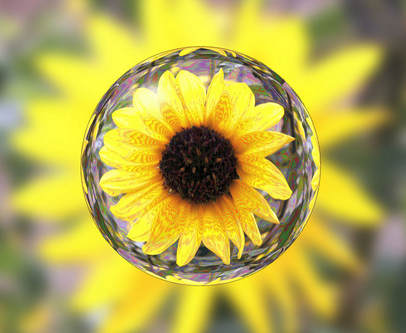
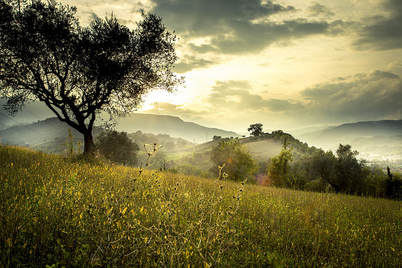


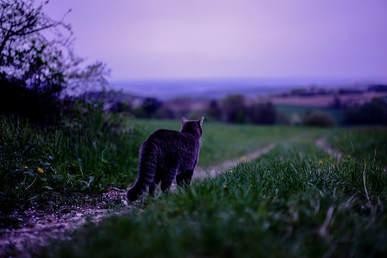

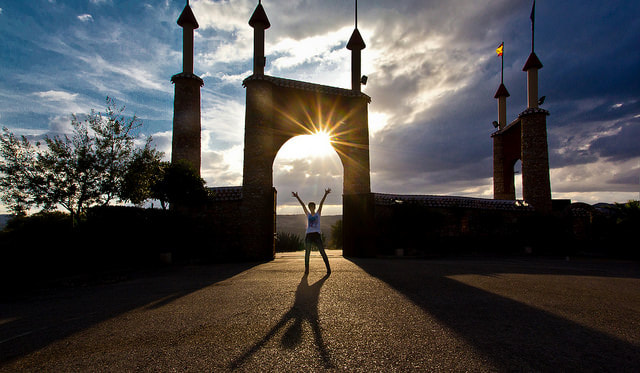

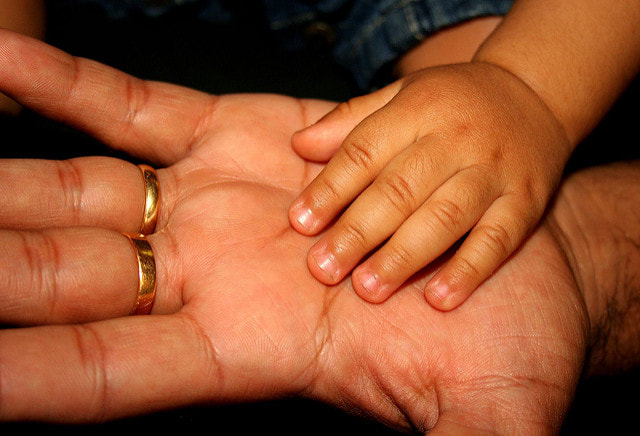
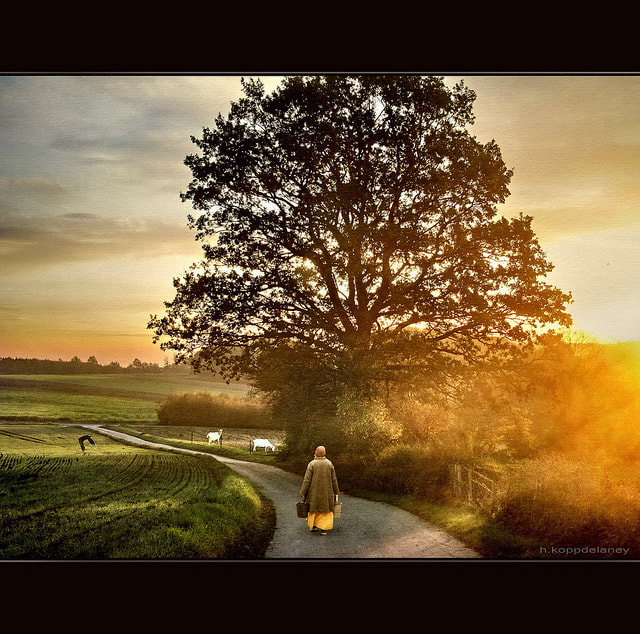


 RSS Feed
RSS Feed